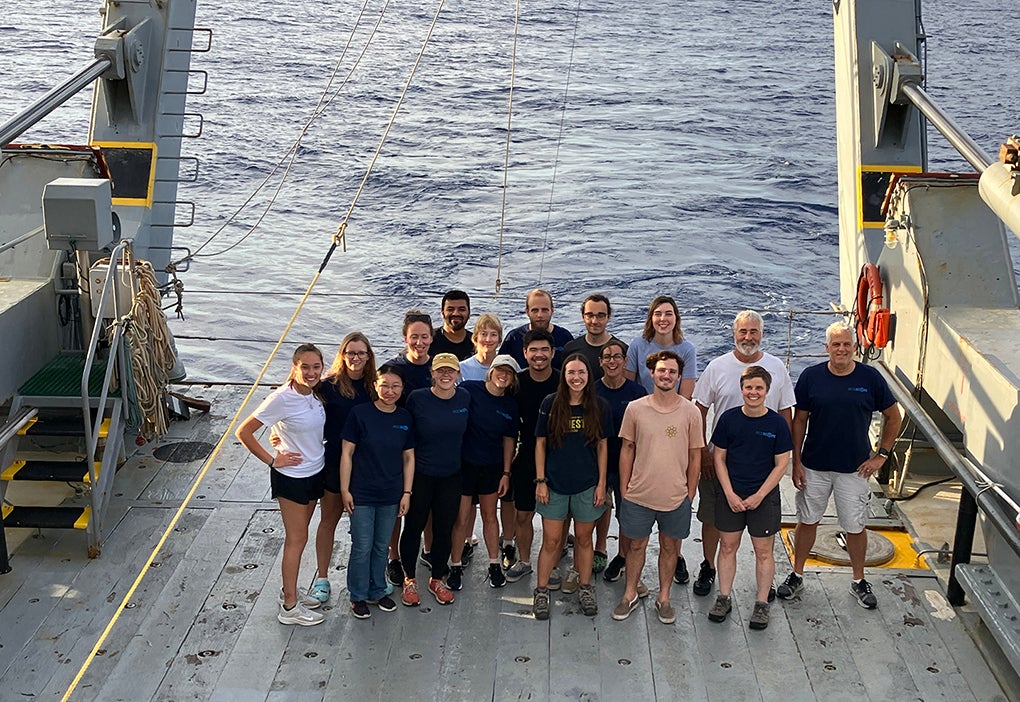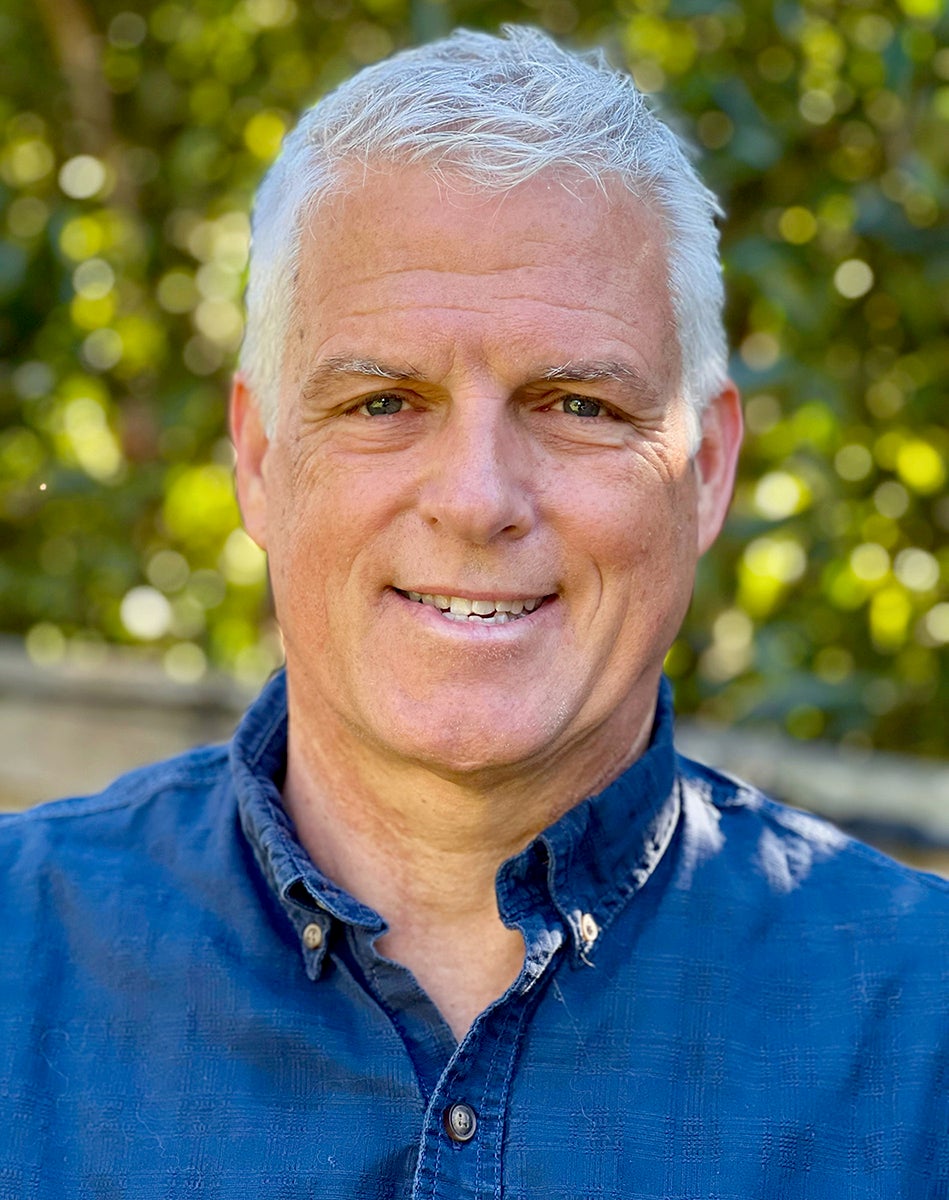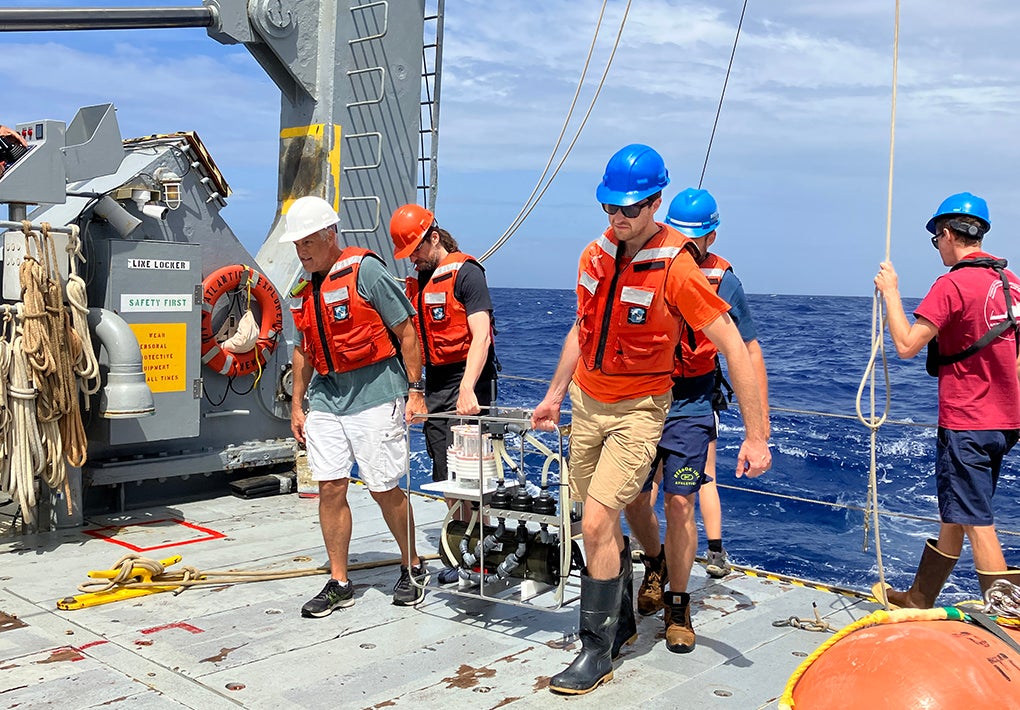Posted in:
Bermuda Institute of Ocean Sciences names Craig Carlson its President and CEO
With a long history of collaborations in Bermuda, the UCSB professor will take over from Bill Curry later this summer

The Bermuda Institute of Ocean Sciences (ASU BIOS), a unit of the Julie Ann Wrigley Global Futures Laboratory® at Arizona State University, is pleased to announce the appointment of Craig Carlson, PhD, as its new president and chief executive officer.
Carlson, who has collaborated with ASU BIOS scientists and staff in various capacities for over 35 years, will succeed former president and CEO William Curry. His association began in the late 1980s as a visiting researcher, becoming an institute faculty member in the mid-1990s. He has been a key contributor to foundational marine science projects in the Atlantic Ocean, including the Bermuda Atlantic Time-series Study and the Microbial Observatory programs, that have provided more than 35 years of critical data toward resolving decadal changes in ocean biogeochemistry and associated microbial processes.

“Throughout his career, Craig Carlson has demonstrated vision and leadership in advancing ocean sciences," said Peter Schlosser, vice president and vice provost of Global Futures at ASU. "As director of ASU BIOS, he will build on this experience to position the institute and the Global Futures Laboratory as a whole to be leading voices in shaping the future of ocean sciences with a focus on the oceans' role in a world under increasing pressure due to human overexploitation of the life-supporting systems of our planet.”
Carlson, who is married to Bermudian Alison Capstick Carlson and maintains deep and enduring connections to the island, brings a distinguished background in microbial oceanography, biogeochemistry and academic leadership to guide ASU BIOS into the future. Since 2001, Carlson has been a professor in the Department of Ecology, Evolution, and Marine Biology at the University of California, Santa Barbara. His innovative research bridges marine microbiology and organic biogeochemistry, uncovering the intricate relationships between microbial community dynamics and dissolved organic matter biogeochemistry in ocean systems.
"I am honored and excited for this opportunity,” said Carlson. “Interdisciplinary science has long been the spirit and centerpiece of the research programs at ASU BIOS. Analogous to the dynamic interactive environment of being at sea on a research vessel, ASU’s School of Ocean Futures and BIOS’s collaborative teams embrace real-time adaptive strategies to tackle critical challenges in marine science. An approach that leads to discoveries and solutions. ASU BIOS’s track record shows the power of collaboration in advancing our understanding of diverse marine environments, from inshore waters and coral reefs to the open ocean, and I am eager to join and contribute to its mission."

Carlson holds a BA in Biology from Colby College, a PhD in Marine Microbial Ecology from the University of Maryland's Horn Point Laboratory, and completed postdoctoral research in organic biogeochemistry at BIOS. Carlson has held numerous leadership roles throughout his career, including chair of his academic department, chair of the US Ocean Carbon and Biogeochemistry Scientific Steering Committee and Science Director for BIOS-SCOPE, an international oceanographic research initiative in its 10th year.
BIOS-SCOPE brings together scientists from Bermuda, Europe, the UK and the US to study ocean biogeochemical cycles, particularly the role of marine microbes in regulating the carbon cycle and sustaining life on Earth. A cornerstone of the program is fostering interdisciplinary collaborations to deepen understanding of organismal and chemical interactions across time and oceanic depths.
In addition, Carlson has served on the executive committee of the US GO-SHIP program and editorial boards of leading scientific journals. His scientific contributions have earned him prestigious honors, including the American Geophysical Union’s Ocean Science Early Career Award (2002), the Association for the Sciences of Limnology and Oceanography’s (ASLO) G. Evelyn Hutchinson Award (2015), recognition as a Fellow of the American Association for the Advancement of Science (2018) and an ASLO Sustaining Fellow (2024).
“I’m thrilled that Craig has agreed to lead BIOS as it embarks on a new era of marine science research and education with its new partner, ASU,” said Bill Curry, president and CEO of ASU BIOS. “Craig is truly well-qualified for the position. Not only has he earned the highest respect of his peers for his scholarship and collegiality, he has also been successful in leading diverse scientific teams addressing complex, interdisciplinary research questions––just the right combination of skills to lead BIOS. I hope to see how ASU and BIOS evolve over the next ten years. It should be terrific.”
About the Bermuda Institute of Ocean Sciences
The Bermuda Institute of Ocean Sciences, a unit of the Julie Ann Wrigley Global Futures Laboratory at Arizona State University, is a U.S. non-profit scientific research and educational organization based in Bermuda and a Bermuda Registered Charity.
For over 120 years scientists have worked to explore the ocean and address important local and global environmental issues. Ocean and atmospheric science research programs at ASU BIOS provide a wealth of information that is used by government representatives, environmental resource managers and community leaders to inform their decision-making processes.
R/V Atlantic Explorer is a U.S. flagged ocean class vessel in the Academic Research Fleet, operated by ASU BIOS as a UNOLS designated operator, that provides scientists with a platform for conducting short-and long-term studies of the open ocean, providing data to inform our understanding of global climate change, nutrient cycling and ocean-atmospheric dynamics. For more information visit bios.asu.edu.
About the Julie Ann Wrigley Global Futures Laboratory
The Julie Ann Wrigley Global Futures Laboratory at Arizona State University represents the urgent belief that we can and must make a meaningful contribution to ensuring a habitable planet and a future in which well-being is attainable.
The Global Futures Laboratory is the world’s first comprehensive laboratory dedicated to the empowerment of our planet and its systems. It is built upon the deep and diverse expertise of ASU scientists and scholars and an ability to leverage insights and knowledge from an extensive global network of partners in order to address the complex social, economic and scientific challenges spawned by the current and future threats from environmental degradation.
From this foundation, the Global Futures Laboratory is able to anticipate and respond to existing and emerging challenges and use innovation to purposefully shape and inform our future so that all of Earth’s inhabitants may thrive. For more information visit globalfutures.asu.edu.
Tagged: